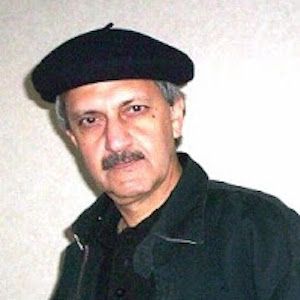Culture and Imperialism
Edward Said reviewedShare Article
Reading Said has always been intellectually thrilling: the thrill lies in his apparent audacity in pushing his conviction that literature has never been unworldly, ahistorical, or immune to gross pressures of various interests and powers and in pressing his claim that the conquest of the Muslim Arab Orient depended on and was textually sanctioned by high Western scholarship. His Orientalism pushed the latter thesis pretty hard, though it was tempered by confessions of respect and praise for a few Orientalists. Said’s literary style has been of a piece with his substantive claims: sizzling and dazzling, driven by his considerable erudition, his passion for language and its constitutive role in the construction of global realities.
Marxism and religion, especially Islam, have both been sharply and peremptorily denigrated by Said in a succession of essays. His Zionist detractors notwithstanding, Said has little use for Marx, the Marxists or Islam in any of its spiritual and ideological versions. Said is an interesting and arresting figure in the West because he is a dissenter from within the ranks of 'the best and the brightest’ in the liberal academy. Princeton and Harvard under his belt, Said is an honored scion of the literary elite in the US. His questioning of the high tradition has been nuanced and tactical and his confidence in its essential value and authority has remained intact.
In this tome, the ambiguities and convolutions that have long shaped Said’s engagement with western culture are still very much in evidence. The strategy here is one of retrenchment and the tone notably conservative, despite rhetorical radical flourishes that pepper the text. For Said, western culture is not innately imperialist in any discernably direct fashion, even though it is continuously affiliated with it and in fact has habitually sanctioned the subjugation of various others in the non-west. Despite the extended litany of crimes and misdemeanors that Said assembles against it in the course of Culture and Imperialism , culture in the end is neither charged nor found guilty.
In this review my focus will be the philosophical assumptions of Said’s literary criticism and the intellectual difficulties they generate for his own humanist stance. Far too much that is interesting, fascinating and pro- vocatively tackled by Said will have to be ignored in this space. Reading about Said is necessary but the only way to fully appreciate him is to plunge into his books: there is no substitute for the sumptuous style and the flashes of brilliant insight that lace all his writings.
No conquest is feasible without the complicity of culture, without the symbols and tokens that dispense meaning and legitimacy to the process of mastering other lands, other peoples. Imperialism feeds off the resources and the authority of culture, though the precise pathways of cultural leverage are a matter of controversy. What is no longer controversial is that culture’s centrality to imperialism lies in its literary power to displace other histories, other values, other dreams, other visions. Few suppose that the deployment of raw power, a matter of guns and stamina, is ever enough: possession of alien terrain is never secure or durable until it is redeemed by markers of superior claim by the conquerors. In Heart of Darkness Conrad brilliantly articulates and re- articulates this insight as he recounts the contours of white transgression against blacks in the Congo; in Shooting an Elephant Orwell hammers home this imperial truth no less forcefully.
Imperialism relies for its success on the collusion of minds, on the acquiescence of the colonized in their subjugation. To colonize success- fully is to possess and restructure native histories and intellects, to hang the sign 'developing’ on their foreheads, to transform them into consumers and aficionados of metropolitan discourses on their deficiencies and disorders. In time the newly afflicted resort, as a matter of course, to metropolitan solutions and therapies for their maladies. Cultural con- quest is a clear and seed operation, a clinical project of replacement and new investments. Not all native beneficiaries of this triumphant alliance of culture and violence, however, appreciated the imperial obsession with their “progress” and 'development.’
In every colonial setting the immersion of natives into the higher echelons of metropolitan culture and style produced a heightened sense of injury and insult among a small number. They suffered little economically: the real source of their alienation was their patent invisibility, their irrelevance as human beings, their inability to safeguard their honour. Notwithstanding their mastery and easy fluency in the colonizers’ culture, their implicit and usually explicit fate was to be dismissed as second-hand and second-rate.
Fanon and Cesaire primarily, but other radical critics as well, would be inexplicable except as conscientious objectors to their humiliation. Rage drives their penetrating unravelling of the pathology of imperialism, their mapping of the strategies of colonial cultural domination. Pessimism nevertheless is not their final stance despite the fact that neither doubts that colonial cultural discourses have been intrinsically and irredeemably injurious to the natives sense of their human worth.
For Said, Fanon and Cesaire are exemplary figures of native resistance to the rule of white culture, and his literary criticism builds on their radicalism. Said has paid profuse homage to both but his critical position lacks their humanist confidence, their faith in truth and in human agency.
...no one today is purely one thing. Labels like Indian or Canadian or woman or Muslim or American are no more than starting points which, if followed into actual experience for only a moment, are completely left behind. Imperialism consolidated the mixture of cultures and identities on a world scale.
For many Orientalism was offensive in its Foucaultian insistence on the irrelevance of truth and of the author: discourse was sovereign, the writer (as well as the truth) an accidental, superfluous tenant in the webs of language.
In Culture and Imperialism , Said recoups the authority of the author and he is less wary of the possibility of establishing proximate truths. Foucault’s presence is dimmer but the cognitive and moral relativism that has shaped Said’s worldly, secular stand point is very much intact. In this book, essentialism is still the enemy, a jejune historicism passes for a methodology, and in these preferences lie the analytic strengths and philosophical flaws of his writing. Foucault by way of Nietzsche has enabled Said to expose the racially arrogant and contemptuous representations of the Muslims others, and it has made the world of Islam available again as a new object of study.
None of this though can adequately compensate for the philosophical weakness that threatens to liquidate Said’s rediscovered humanist allegiance. Fashionable literary historicism and a pronounced fear of absolutes, is insufficient as the basis for an argument for decency in human relations and cross-cultural scholarship. A critique of oppression is sterile in the absence of a defensible theory of human nature that rules out certain forms of violence and domination in international relations. In the absence of essentialism, necessarily qualified, there is very little ontological or ethical ground left for anti-imperialist analysis or practice.
No final barriers can be erected or articulated if there is nothing fixed in human nature, nothing given, that authorises an ethics of limits, a morality of uncrossable lines. For all the plangent, often brilliant, reflections on and criticisms of the culture’s tacit and occasionally overt collusions with imperialism, Said’s analysis lacks adequate cogency: it falls flat because Said has no thesis, no sustained, grounded, articulated argument to offer in lieu of the imperialist rationale for conquest.
Reading culture, especially novels, is no trivial matter: it was never easy but it is peculiarly taxing in a world infused with the emblems and exigencies of imperialism. Political power surrounds and habitually invades cultural production. For Said, this miasmic, inconspicuous imperial presence in the interstices of contemporary life makes all that we do exceptionally complex:we need to know not only 'what’ to read but 'how’ to read. Said calls this strategy 'contrapuntal’: it describes a style that reads contextually, responsive to the global movements of power that constitute the landscape of writing and writers.
No writer, Said repeatedly insists, is “mechanically determined by ideology,” and no novel by good writers is ever just a pretext for a crude political program. None that he interrogates is in any straightforward sense an imperialist 'stooge.’ In Culture and Imperialism , Said appreciatively details the aesthetic acumen of leading figures on 20th century reading lists: among others Austen, Camus, Kipling, Conrad. Yet one cannot simply and directly read them as though their novels were written in a pure space, within a territorial zone suspended above the gross intrusions of politics.
Aesthetic autonomy is not a myth but no novel, no cultural object can or does exist outside history and politics, interests and desires, power and counter-power. In Said’s view, culture is deeply implicated in history, and writers are immersed in the messy world of politics willy-nilly, whether they choose to be or not. Austen lived and wrote at the fringe of imperial politics but some of her novels presupposed the concrete factuality of the British Empire. By contrast Conrad and Kipling wrote knowingly, astutely about the responsibilities of the imperial vocation as well as its obnoxious, murderous liabilities.
For both, the Empire was the massive overriding presence, the fount of European power that made the non-west available for analysis and aesthetic performance. For Said, the point is not that art is politics, that aesthetics is disguised power play, but that literature and novels happen to come to life in the world, that they reflect and represent the world, that they are susceptible to its coercive and shaping pressures.
A conventional concept of literature underlies Said’s analytic stand point: that reading good novels improves us and in the process, the human condition. But our appreciation will be 'enhanced,’ keener and far more intelligent if we read novels in their global political context. Two distinct, though inchoate, claims buttress this standpoint: that the world and human beings are constituted in and by language and literature, and second, that power and domination are the conditions of life in the world. Foucault’s influence is visible in both propositions, and it comes as no surprise that a Palestinian victim of linguistic and literal violence finds this analysis congenial.
Far less clear is the basis for Said’s incipient humanist and humane sympathies. Taking Machiavellian power play as constitutive of the species makes the passion for imperialism both natural and normal. In Culture and Imperialism , Said says as much and more, he even concedes that it is regular feature of 'all cultures’: representing others for the purpose of controlling them is standard procedure, an old habit of the species.
Yet Said seriously hopes for a better world 'liberated’ from precisely this intrinsic tendency to 'master or control.’ Foucault, and for that matter Thrasymachus and his offspring, can neither advance the project of liberation nor make sense of the humanist impulse. For what they all espouse is a view of man fundamentally at odds with the high-minded expectations of anti-imperialists. No amount of literary erudition and compassion can mask Said’s tortuous philosophical convolutions, the profound emptiness at the core of his critical enterprise: his compelling inability to offer a vision of man that could possibly justify his assertions of optimism.
Minus a credible political theory, which he implicitly dismisses as a prototype of the imperial sensibility, all Said can offer are theoretical crumbs: an au courant historicism responsive to the flux of differences in the human condition but unredeemed by any ontological authority or theoretical cogency. For instance, Said assails the cavalier indifference of Camus and Conrad, and Austen and even Kipling, to the lives and histories of the natives on the receiving end of imperialism, he is appalled by their sheer lack of interest in the native point of view. But no persuasive reason is adduced by Said to explain what he so casually presumes: that a writer is obligated to recognise or accord respect to the sufferings of cultural outsiders, to the tribulations of others beyond the national borders. Altruism and aesthetics are as unlikely bedfellows as politics and truth, as nationalism and generosity. Starting with Thrasymachus or Machiavelli or Hobbes or Foucault traps one in the anti-humanist corner. Said’s longing for liberation thus seems more like a wild wish, a forlorn cry in the imperial night, than a reasoned prognosis. Lionizing culture so effusively, even going so far as to claim that 'culture is frequently in advance of politics, military history, or economic process,’ legitimises the autonomy of aesthetics and consolidates the separation of cultural artifacts like novels from the world. A claim of this kind cuts at the heart of the humanist case against imperialism: Said is playing on very thin ice since the thrust of his analysis is that the historical, the secular, the concrete is implicated in the cultural and the æsthetic.
[Imperialism’s] worst and most paradoxical gift was to allow people to believe that they were only, mainly, exclusively white or black or Western or Oriental. Just as human beings make their own history, they also make their own cultures and ethnic identities...[t]here seems no reason except fear and prejudice to keep insisting on their separation and distinctivness, as if that was all human life was about.
Reading 'contrapuntally’ is, nevertheless, an interesting and promising notion. Conrad and Austen, and other western literary luminaries, should be read, according to Said, in conjunction with the likes of C.L.R. James and George Antonious, Ranajit Guha and S.H.Alatas. Only such readings will enable us to acquire a historically textured understanding of the time and the spaces in which they wrote, and of the imperial outlooks and their buttressing values that filled the writerly air. Hence Said reads many novelists and writers, including E.M. Forster, Dickens, T.E. Lawrence, for us with an eye to highlighting the nuances and potencies of their context—its humane possibilities, its integral limitations and crucially, its imperial tendencies, its lethal agendas for those living beyond the pale.
Fanon occupies an ambiguous position, liberally praised by Said for his prescient attack on the betrayals and excesses of the native nationalist leaders, but deemed less attractive for his initial celebration of violence and his theoretical dependence (alleged by Said) on Lukacs. C.L.R.James and Antonious, interestingly though not surprisingly, elicit far more of Said’s sympathies than Guha and Alatas because the older writers display a sense of regard and respect for western culture that transcends their critique of its involvement in imperialism.
Alatas and Guha by contrast, fail to recognize the hybrid, subtle texture of aesthetics and culture, and hence the incongruity of indicting the latter directly for the conduct and machinations of imperialism. Still, what particularly interests Said is that the four writers represent the leading edge of the movement to resist imperialism, to challenge the advance of alien culture and its authority. This is one of the solemn themes of Culture and Imperialism : that the natives in the 'third world’ were not pliant, duped victims, they were 'active’ resisters, they stood up to imperialism.
Survival, in fact, is about the connections between things... it is more rewarding and more difficult to think concretely and sympathetically about others than only about 'us'. 1Edward Said; from a lecture delivered at York University in Toronto on February 10, 1993. [see Design Book Review Issue 29/30 for complete text.]
For Said, the point is that resistance testifies to the essential humanity of the natives, to the integrity of their culture and their native identity. Said is at pains to stress what students of imperialism in the disciplines of political science and sociology have long known. Nevertheless his breath- less discovery of a tradition of native resistance is a valuable corrective to the arcane presumptions of literary critics about the realities of politics on the ground.
Native resistance to imperialism points to a sense of indigenous self- assurance, no matter how sketchily articulated, that explains why the scribes and managers of imperialism targeted culture as the site of attack. In many passages, Said penetratingly unravels the latent and manifest power of imperialism in the various tropes that circulate and recirculate in the literary, academic and political culture of the West. Racism and Orientalism, specially in their anti-Arab currency, are not only far from dead, they are constantly available for ideological and military purposes as in the case of the recent American war on the people of Iraq.
Launched under the banner of the UN and with the collusion of a number of (perpetually available) servile Arab regimes, this 'civilized’ exercise in mass slaughter was prepared and marinated in the domains of the culture produced in Washington and Hollywood—a culture overdetermined by a long imperial history and legitimised by an equally long lineage of patronising academic scholarship on the Muslim Orient. Not much has changed since the publication of Orientalism in 1978 in the popular representation of the Muslim or in the generalised contempt for the Arabs that has fuelled American foreign policy in this region.
Contempt for the Arabs within this disparaging discourse has a particular edge, a lethal twist to it, that does not apply to the other others: on this Said is absolutely right.In the case of the Arabs, western culture frequently functions as imperialism, not simply as backdrop or an oblique adjunct of imperial rule. Recognising this truth has not, interestingly, compelled Said to revise his high praise of the western cultural canon, or to appreciate the contribution that 'New Historicism, deconstruction, discourse analysis, post-modernism,’ have made to his prized project of human liberation.
Rather puzzlingly, Said dismisses these new methods as 'cults’— analytic styles which he has himself borrowed and adapted, and which he has helped to transform into powerful tools of anti-imperialist criticism. Contemporary colonial discourse analysis is undoubtedly a legacy of Said’s foray into the terrain of western orientalism. This anomaly trenchantly serves to underline Said’s cultural conservatism, his enabling sense of himself as a practitioner of the kind of literary criticism that valorises the aesthetic even as it notices the struggles for power taking place in and around the literary critic, the impassioned artist.
Contra Said, Culture and Imperialism is not the text of an 'exile,’ an æsthetic or even a strictly political refugee: it is the product of a cultivated enthusiast of the European Enlightenment, a highly reflexive modernist, a confirmed secularist wary of the abundant charms of religion and nativism. Said is no exile in any significant sense of the term, but he is a redoubtable critical insider.
Notes
- Edward Said; from a lecture delivered at York University in Toronto on February 10, 1993. [see Design Book Review Issue 29/30 for complete text.]












